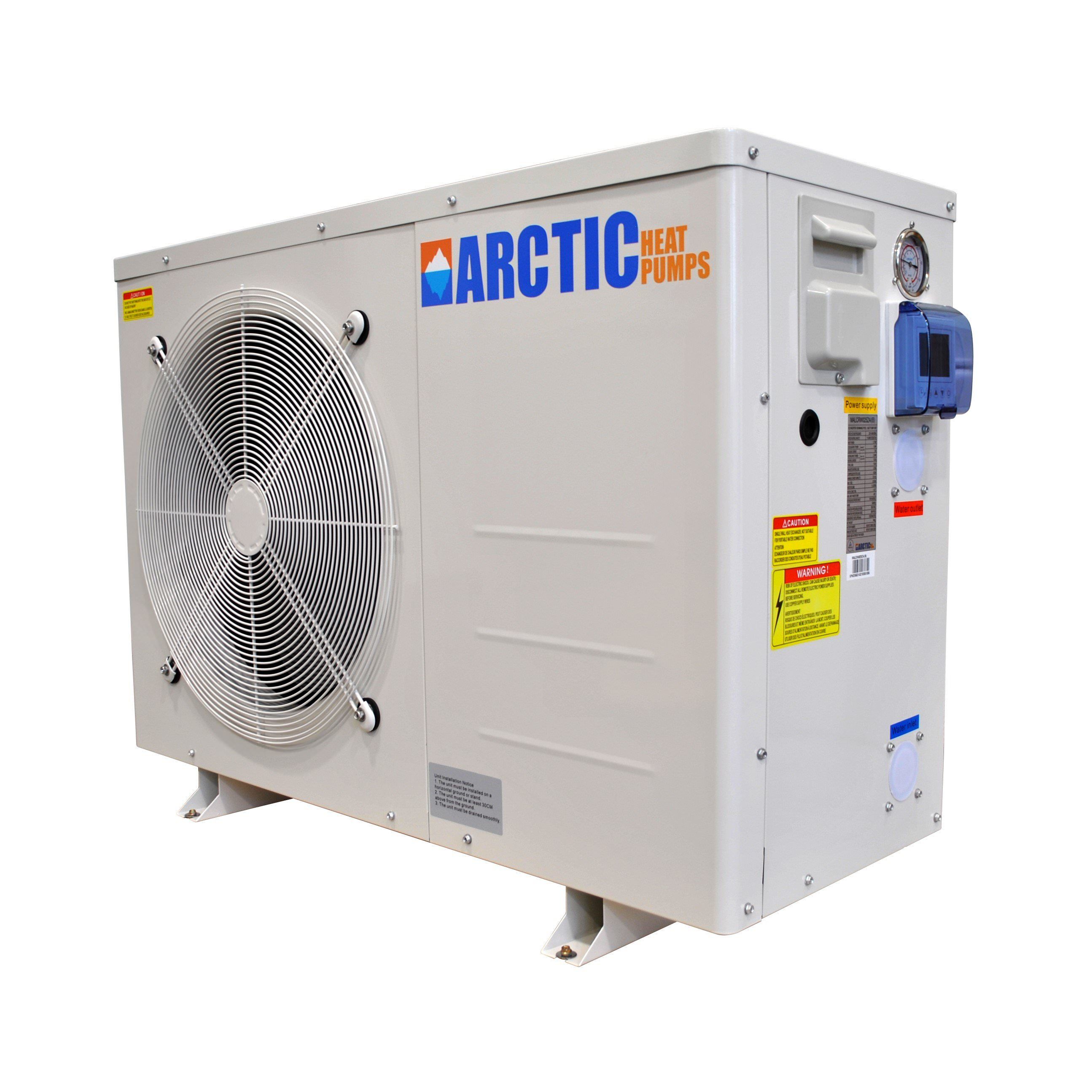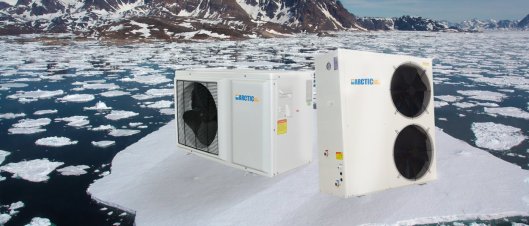Do you own a pool at home? And are you living in warmer climates? If yes, then you may find it a big hassle to regulate the pool temperature from getting too hot. When the water temperature goes above 30 C or 86 F, it can be bit problematic for you.

Take a look at all the hassles that warm pool water can bring to you:
- The warmer temperature makes perfect for the growth of algae and other bacteria.
- The chlorine gas in warm water dissipates much faster and needs much stronger doses. If the pool water gets more chlorine, it makes you uncomfortable by irritating your skin and eyes.
- If you leave the pool untreated in warm weather, no wonder it will turn into a green mess.
Remember that, a rule of thumb states that you’ll need two times more chlorine for every 10 degrees F over 80F. However, the right solution to this problem is the Arctic Pool & Spa Heat Pumps. They are hybrid heaters which help in heating and cooling the pool water efficiently.
Why Do You Buy Arctic Pool & Spa Chillers
Want to avoid the hot weather? Looking for a perfect way to chill during hot weather? However, if you’re living in warmer climates, then regulating pool temperature from getting hot can be a hassle.
Fortunately, Arctic Pool & Spa Chillers are available to keep your pool or hot tub cool and comfortable anytime. The pool chillers have ability to cool your pool or hot tub at low temperature of 45 F during the summer heat.

After that, the system switches to heating automatically by touching a button. Even if you want to take advantage of cold immersion therapy, you can turn your pool into a cold plunge pool anytime you want.
When the temperature goes above 30 C or 86 F, cooling water can be problematic for you. In fact, the warm temperature is perfect for growth of algae and other harmful bacteria. Generally, chlorine gas dissipates faster from warm water and needs stronger dose. If the chlorine level is high in the pool, it results in uncomfortable irritation to eyes and skin.
If you
In warmer climate conditions, regulating the swimming pool temperature from getting too hot can be a hassle. If the water temperature remains above 30C or 86F, it can be problematic.
1. First of all, the warm temperature is good for algae and other bacteria growth.
2. Secondly, the chlorine gas dissipates quickly with warm water and needs a stronger dose. More use of Chlorine results in uncomfortable irritation of skin and eyes. If you leave the pool untreated in warm weather, it will turn into a green mess within no time. Considering a rule of thumb for every 10 degrees F over 80 F, you will need two times more chlorine.
If this is the case, your solution is the Arctic Pool & Spa Heat Pumps – the Hybrid Heaters that can heat as well as chill the water. It has an automatic temperature function so that you can set the temperature. This means you can maintain the temperature by either cooling if the water exceeds the set point or heating if the water goes down the set point.
However, a
Heat pump technology has been commonly adopted in the swimming pool industry for its significant cost savings in the long run. Most pool heat pumps can help you save 70% or more in heating costs. While most hot users often focus on the heating requirements, the Arctic series heat pump is also a chiller whenever required.
When the swimming pool becomes hot, it can cause problems with chemical imbalance and become full of algae quickly, if not monitored properly. Chlorine goes to its gaseous state and evaporates as the temperature of the pool water increases. In the places like California, Arizona, and Florida, the hot summer temperatures can seem difficult for pool owners.
In warm climates, controlling the pool temperature from getting hot can become a hassle. Water temperatures above 30C or 86F can become more problematic. Firstly, the warm temperature can be perfect for algae and bacteria growth. Secondly, the chlorine gasses dissipate quickly for warm water and need stronger doses.

- -25C heat pump
- air source heat pump
- chiller for pools
- Chillers for Swimming Pools
- cold weather heat pumps
- Heat Load Design
- Heat Load Design
- Heat Loss Design Services
- Heat Pump
- Heat Pump Cold Weather
- Heat Pump for Hot Water
- Heat Pumps
- heat pumps in Nova Scotia
- Hydronic Air Handler
- Inverter Heat Pump
- Inverter Heat Pump
- radiant floor cooling
- radiant floor Design
- radiant floor Design
- radiant floor Design
- Spa Heat Pump
- Swimming Pools